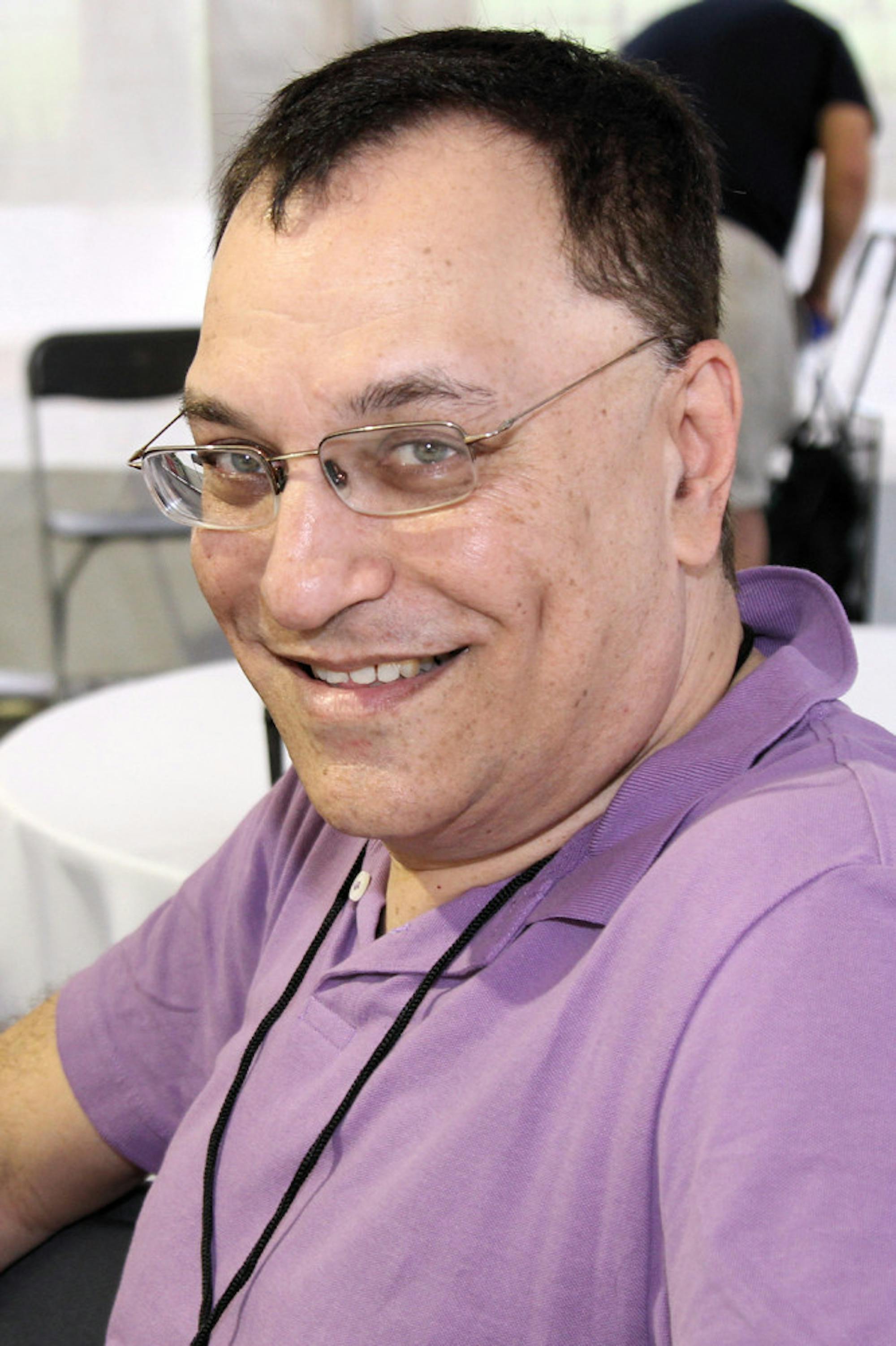Kenny Fries, an author and disability rights activist who mainly writes on his experiences as a disabled, gay, Jewish man, visited Tufts yesterday to read from and talk about his recent memoir, "In the Province of the Gods" (2017), as well as preview his forthcoming book, "Stumbling Over History: Disability and the Holocaust."
The event was organized by Health and Wellness Services and Student Accessibility Services as part of Disability Awareness Month. Michelle Bowdler, executive director of Health and Wellness Services, opened the evening by introducing Fries and speaking about his illustrious career as a writer. Fries has published memoirs, poems and essays and teaches in the MFA in Creative Writing Program at Goddard College. He’s the recipient of numerous awards and grants and has been a Fulbright scholar twice.
“We were undergrads at Brandeis [University] together, and I swear I remember him saying to me ‘I think I want to be a writer,’” Bowdler said.
Fries began by reading from his first memoir, "Body, Remember" (1997).
“Those afternoons I did not take the bus, and chose to walk home from high school, I would find this boy, maybe 10 or 11 years old, sitting on the stoop of the semi-detached house where I imagine he lived. Every time I passed this boy asked, ‘Why your legs the way they are?’ And I would answer, ‘I was born that way,’ never stopping or slowing down,” he read.
This memoir was Fries’ first foray into writing about his intersecting identities.
“I was born missing bones in both my legs. I need specially designed orthopedic shoes, as well as a cane, to get around,” Fries said.
Fries then read the prologue and part of the first chapter of "In the Province of the Gods."Fries’ memoir tells his story of being a disabled foreigner in Japan. He moved to Japan with no specific interest in the country or the culture, but in retrospect, he says it affected the course of his life.
“I hadn't lived abroad since I was a junior in college, and I wanted to live abroad and I thought the time that I would be able to do that was shrinking. So I decided to apply for all these international grants. And I knew nothing about Japan. I had no interest in Japan, and I got the grant to go to Japan, which was not an easy thing to get. And off I went, and it totally changed my life,” Fries said.
Fries spoke of his struggles adjusting to a new culture, especially as a person with disabilities. He also explained the differences he observed between the way people treated him in the U.S. and the way people looked at him in Japan.
“In Japan if people stare at me, it is because I am a gaijin. Here, people keep their feelings about my disability to themselves," Fries read. "My experience with being different has, in a short time, already contradicted my worst fears and expectations."
After this reading, Fries moved to his essay titled “The Nazis’ First Victims Were the Disabled." According to Fries, this essay serves as an introduction to his current project, called "Stumbling Over History: Disability and the Holocaust," which is about Aktion T4, the Nazi euthanasia program against the disabled.
As both a disabled and Jewish person, Fries said this work is highly personal for him. The essay recounts Fries’ experiences in Hamburg, Germany, where he gave one-on-one talks called “The Unenhanced: What Has Happened to Those Deemed ‘Unfit’,” covering his research on Aktion T4.
“What is a life worth living? Too often, the lives of those of us who live with disabilities are not valued, and feared. At the root of this fear is misunderstanding, misrepresentation, and a lack of knowledge of disability history and, thus, disabled lives,” Fries read from “The Nazis’ First Victims Were the Disabled.”
Following the readings, Bowdler turned it over to the audience for questions for Fries, who further expanded on his experiences.
Mindy Duggan attended the event because of her interest in disability awareness.
“I heard about it through email from Tufts and I know that it's Disability Awareness Month, and when I saw that he was coming in the spirit of that, I read up about him. I saw his book 'Body, Remember,' and the new one that he spoke about, 'In the Province of the Gods,' and figured I’d love to hear him speak,” Duggan, a first-year, said.
Disability activist Fries shares life experiences, reads from written works

Author Kenny Fries is pictured at the 2017 Texas Book Festival.





